11 Foods to Avoid If You Have Bad Kidneys: Kidney Health
Kidneys are the small bean-like organs that are responsible for performing some of the most important bodily functions. For instance, kidneys are responsible for the generation of important hormones; they eliminate waste through urination, filtering the blood, and maintain a balance of fluids and minerals.
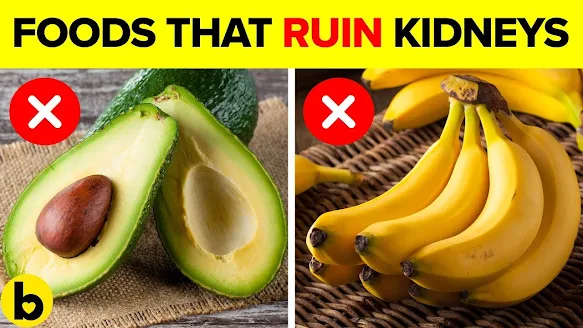
Kidney ailments or damage renders the kidneys unfit to perform any of these functions, which can wreak havoc within the human body. There are various risk factors that increase the probability of kidney disease, for instance excessive hypertension and uncontrolled diabetes. Some other common causes of kidney ailments include heart disease, HIV infection, alcoholism and hepatitis C.
Once the kidneys are damaged and lose their ability to perform their responsibility, an excessive building up fluids, minerals and waste products begins to accumulate within the bloodstream. However, you can prevent further damage and boost your kidney’s ability of functioning by carving out an effective diet that contains kidney-friendly foods that aid in reducing the build-up of waste, minerals and fluids. Along with eliminating all food items that harm the kidneys.
What is the Relationship between Kidney Damage and Diet?
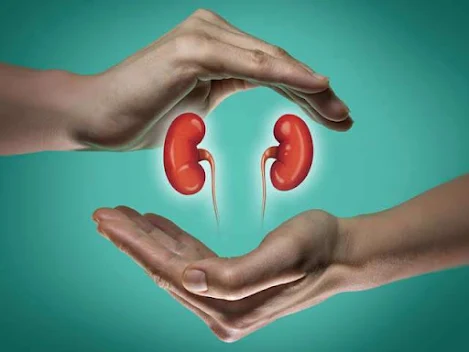
The dietary recommendations and restrictions usually depend and vary according to the stage of kidney disease or the extent of damage that has occurred. Patients who are suffering from the earliest symptoms of chronic kidney disease will be given strikingly different dietary recommendations and restrictions as compared to patients who are at the last stage of kidney damage or kidney failure.
Foods to Avoid If You Have Bad Kidneys
Patients who are suffering from the last-stage symptoms of kidney failure and are being treated with dialysis, a treatment that eliminate fluid buildup and removes waste products, will be given different dietary recommendations. Majority of the patients who are suffering from last stage symptoms or end stage kidney failure simply have no option but to adopt a kidney-friendly diet and avoid foods that threaten to create an excessive buildup of harmful chemicals or nutrients within the bloodstream.
RELATED: How To Avoid Dialysis
Amongst patients suffering from chronic kidney ailments, the kidneys are rendered unable to appropriately eliminate excessive phosphorus, potassium and sodium from the bloodstream. Therefore, these minerals put them at a risk of elevated blood levels. An effective renal diet revolves around the consumption of foods and beverages that will make sure your sodium and potassium intake doesn’t exceed 2000 mg a day, while your phosphorus consumption cannot increase more than 1000 mg a day.
Kidneys that are damaged tend to have difficulty filtering out the waste products that are generated when protein is metabolized. Therefore, patients suffering from stage 1-4 symptoms of the chronic kidney disease are required to reduce their consumption of protein. However, patients who are taking the dialysis treatment and suffering from end-stage kidney failure require an increased consumption of protein,
Here, take a look at 11 food items that you must eliminate from an effective renal diet:
1. Dark-Colored Colas
Sugar-packed sodas and artificially flavored colas are loaded with calories and sugar, and they also pack up a variety of harmful additives that are brimming with phosphorus, particularly the colas with dark colors.
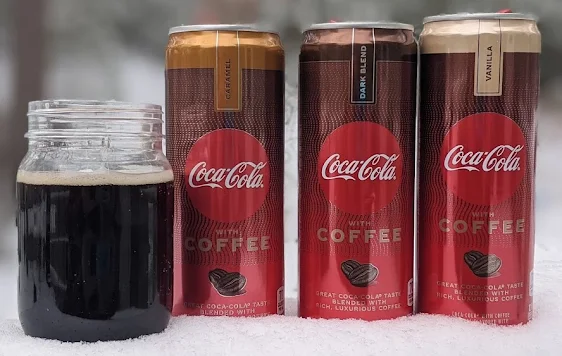
Majority of the food manufacturers use phosphorus to process food products and beverages, specifically to improve their flavor, increase their shelf life and reduce discoloration. Research reveals that artificially added phosphorus tends to be much more absorbable by the body as compared to the phosphorus consumed through animal meat, plants or other natural sources.
Artificial phosphorus additives tend to have a different composition than naturally occurring phosphorus, and hence, it is not bound to protein. In fact, these additives are discovered to be present as a kind of salt, which is readily absorbed within the intestinal tract. Artificially added phosphorus is commonly listed down on the ingredient list of the products; however, the regulations don’t compel food manufacturers to specify the exact quantity of additive phosphorus added to their product.
The additive phosphorus present within your coal depends largely on the variety you are consuming, but research reveals that a 200 mil serving of majority of the dark colored colas contain around 50-100 mg of additive phosphorus. Therefore, these dark hued colas should be strictly eliminated from an effective renal diet. (Read more: The Big Artificial Sweetener lie - Research found)
2. Avocados
Avocados are nutritional super foods that are considered immensely beneficial and essential because of this rich concentrations of disease-fighting antioxidants, heart-healing fats and fiber. However, despite being such a healthy dietary staple, they are a dangerous food item for people struggling with kidney ailments.
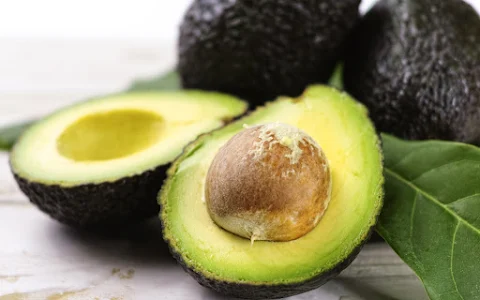
This is mainly due to the incredibly rich potassium concentration found in avocados. For instance, a 150 gram serving of avocados packs up an alarmingly high 727 mg of potassium, which is twice the amount of potassium present in a medium-sized banana.
Think about it, one cup of avocado can provide you more than 37% of your daily potassium restriction of 2000 mg. Therefore, it is highly advisable to eliminate avocados and avocado-based products, such as guacamole, while exercising a renal diet and aiming to reduce your potassium consumption.
ALSO: Health Benefits Of Avocado Seeds
3. Canned Foods
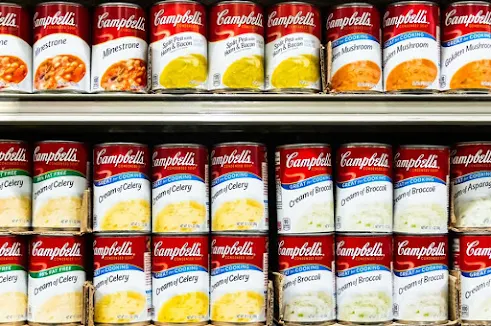
Canned foods, including beans, fruits, vegetables, sauces and soups, are commonly brought home because of the undeniable convenience and the affordability. Many people who commonly purchase these canned foods are not familiar with the alarmingly high quantities of sodium that goes into these foods.
High amounts of salt are added to canned food varieties as a preservative to enhance the flavor and boost the shelf life of the product. Due to the excessively high density of sodium present in most canned foods, it is highly advisable that patients suffering with kidney damage avoid them altogether, or limit their portion sizes if they must add them to their diets.
It is always a healthier choice to pick out canned food varieties that are low in sodium or labeled as “no salt added”. You can also reduce the sodium density by 30-80% by simply rinsing and draining canned food items. This technique works best with canned beans and tuna.
4. Whole-Wheat Bread
Whole wheat bread is largely considered the healthiest choice for a perfectly well-balanced diet, and over refined and processed white flour breads are discouraged due to their lack of essential nutrients. However, when you are suffering with kidney disease or damage, it can be challenging to choose the right variety of bread that won’t aggravate your symptoms.
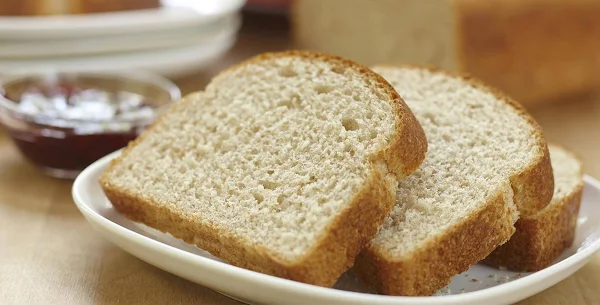
Even whole wheat bread is a much more nutritious option because of its rich concentration of fiber, but patients with kidney damage are strongly advised to pick out white bread instead of whole grain varieties. You see, whole wheat bread packs up a high concentration of both, potassium and phosphorus, and the greater the concentration of bran and whole grains, the greater their concentration of these two nutrients.
For instance, a 30 gram serving of whole wheat bread will provide your body 69 mg of potassium and around 57 mg of phosphorus. On the other hand, a one ounce serving of white bread will only provide you 28 mg of both, potassium and phosphorus. Just keep in mind that most processed breads and packaged bread products, be it whole wheat, white or brain, also pack up incredibly high quantities of sodium.
It is highly recommended to pick out your breads after comparing and examining the nutrition labels of several varieties. Be sure to pick out a variety that is low in sodium, and it is also important to cut down your portions and limit your consumption as much as you can.
5. Brown Rice
Much similar to whole wheat bread and other products, brown rice is also a whole grain and hence, it contains a much richer density of potassium and phosphorus as compared to white rice. For instance, one cup of cooked brown rice will provide you a whopping 154 mg of potassium and 150 mg of phosphorus. On the other hand, one cup of cooked rice will only provide you 54 mg of potassium and 69 mg of phosphorus.
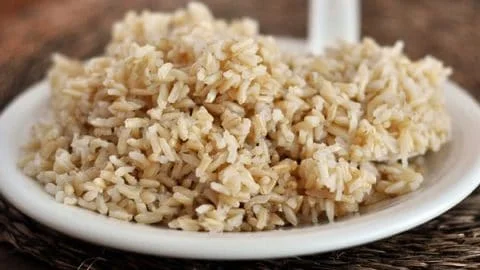
You can add brown rice to your renal diet as long as you can control your portion sizes and eat them occasionally by balancing them out with other food items that are low in phosphorus and potassium. It is highly advisable to pick out low-phosphorus grains, such as Bulgar, buckwheat, couscous and pearled barley are much safer alternatives for an effective renal diet. (Read also: Health Benefits Of Rice Water)
6. Bananas
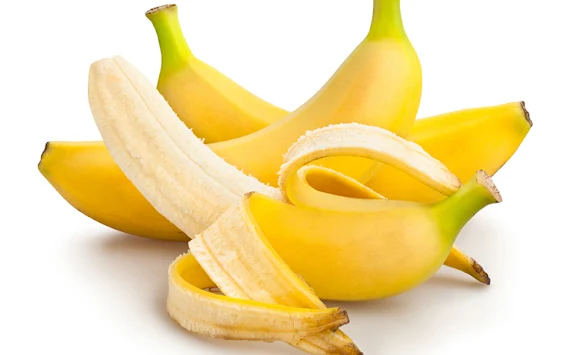
Bananas are popular for packing up an incredibly rich concentration of potassium. Even though they naturally contain lesser concentrations of sodium, one medium-sized banana will give you an alarmingly high 422 mg of potassium. If you have a habit of consuming more than two bananas a day, it can be extremely difficult to maintain your daily potassium consumption less than 2000 mg.
If you’re fond of eating tropical fruits, bear in mind that nearly all the varieties are packed with extremely rich concentrations of potassium. However, pineapples have a considerably less potassium density as compared to other tropical fruits. They will make a kidney-friendly and flavorful addition to your renal diet.
ALSO: Top 4 Uses Of Banana Peels On Your Skin
7. Dairy Products
Dairy products are an essential part of a healthy and balanced diet because they pack up a rich concentration of several nutrients and vitamins. However, dairy products are also rich in potassium, phosphorus and protein, which makes them a hazardous dietary ingredient for patients suffering from kidney ailments.
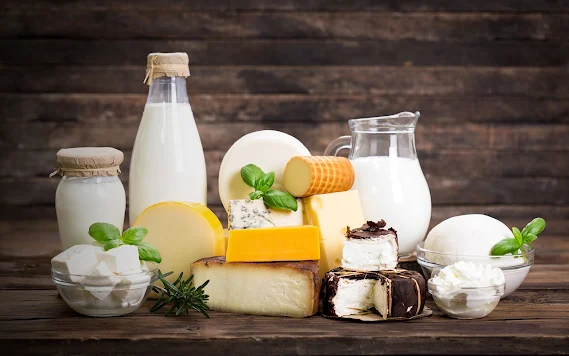
8 ounces of whole milk provides 222 mg of phosphorus and an alarmingly high 349 mg of potassium. The regular consumption of several dairy products along with other food items that are rich in phosphorus can be hazardous for the bone health in patients with kidney ailments. This comes as a bit of a surprise because the calcium content in dairy products, especially milk, is widely advised to strengthen the muscles and bone structure.
Research reveals that when the kidneys are ailing or suffering from damage, an excessive consumption of phosphorus will lead to a buildup of phosphorus within the blood stream. This will cause the bone structure to become excessively weak and thin with the passage of time, which will you at a greater risk of suffering fractures or bone breakage.
Dairy products also tend to be rich in protein, for instance, 8 ounces of whole milk packs up around 8 grams of protein. Patients with kidney disease should take measures to reduce their dairy consumption in order to prevent an excessive buildup of protein waste within their bloodstream.
Instead of whole milk, you can pick out safer substitutes that pack up much lesser concentrations of protein, phosphorus and potassium as compared to cow’s milk and dairy products. For instance, rice milk and almond milk are great alternatives for whole milk while you’re following a renal diet.
8. Oranges & Orange Juice
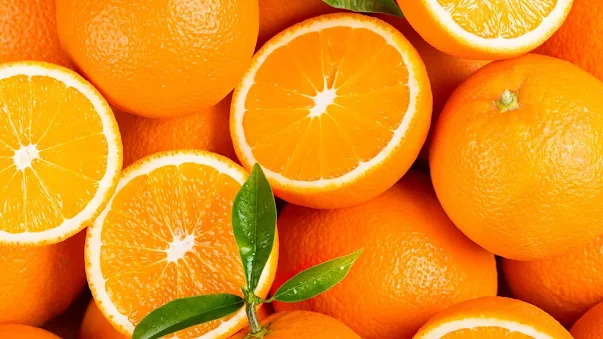
Even though orange and freshly squeezed orange juice is one of the richest and healthiest sources of vitamin C, these citric delights also pack up an incredibly high concentration of potassium. One large orange can provide you an alarming 333 mg of potassium. But orange juice packs up a higher density, for instance, 8 ounces of orange juice will give your body 473 mg of potassium.
Keeping in mind their dangerously high concentration of potassium, it is best to avoid oranges and orange juice, and if you must add it to your renal diet, reduce its portions. Instead of oranges, you can pick out healthier fruits that pack up lower densities of potassium, such as grapes, cranberries and apples.
ALSO:Health Benefits Of Citrus Fruits That You Probably Didn't Know
9. Meats
There is an abundance of research that establishes a direct association between the consumption of processed meats and the risk factors of chronic ailments. Processed meats are considered one of the unhealthiest diet staples because they pack up an alarmingly high concentration of preservations.
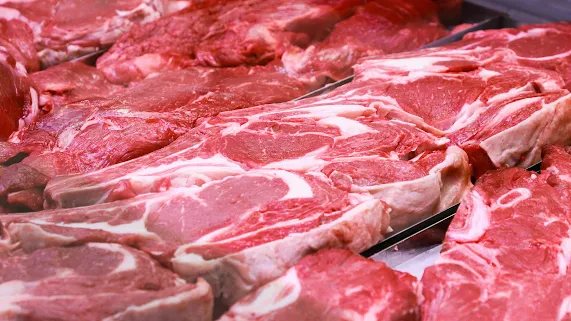
Basically, are meats that have been canned, dried, salted or cured, for instance sausages, bacon, pepperoni, jerky and hot dogs. Processed meats are brimming with dangerously high quantities of salt, which is added to improve its flavor and preserve the taste for a longer shelf life. Moreover, these meats also pack up a high density of protein, and if your doctor has specifically instructed you to reduce your protein consumption, consuming processed meats is an unhealthy habit for you.
If your diet is brimming with meats, you will find it extremely challenging to keep your daily sodium consumption less than 2000 mg, along with effectively managing your protein consumption.
READ MORE: 3 Things That Happen When You Stop Eating Meat
10. Pickles, Olives & Relish
Pickles, relish and processed olives are the most commonly consumed kinds of cured or pickled foods. The process of pickling and curing involves the addition of unusually large and unhealthy amounts of salts. For instance, one spear of pickle tends to pack up over 300 mg of sodium. Similarly, a serving as small as 2 tablespoons of sweet pickled relish packs up a dangerously high 244 mg of sodium.

Processed olives that are fermented and cured to make their flavor less bitter are also soaked in salt to alter the bitter taste. Five green pickled olives pack up an alarming 195 mg sodium, which happens to be a dangerous high portion of sodium in such a tiny portion size. Majority of the supermarkets and grocery stores provide low-sodium varieties of olives, relish and pickles that tend to pack up less salt than their traditional counterparts. However, keep in mind that even the varieties with reduced-sodium tend to pack up high amounts of sodium.
Therefore, it is best to restrict yourself from consuming processed olives, pickles and relish, and if you must have them, consume mindfully small quantities.
11. Apricots
Apricots are a powerful superfood as they pack up an incredibly rich concentration of various essential nutrients and minerals, including fiber, vitamin A and vitamin C. Unfortunately for patients suffering with kidney damage, they also pack up dangerously high quantities of potassium. Just one cup of raw apricots packs up a whopping 427 mg of potassium.
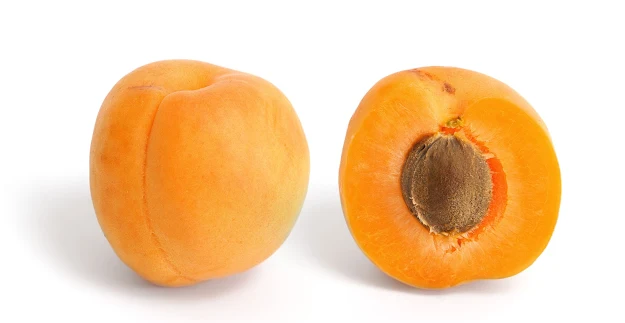
When apricots are dried, their potassium content gets more concentrated and boosted. A one cup serving of dried apricots pack up more than 1500 mg of potassium. This basically indicates that consuming no more than one cup of dried apricots will brim up your body with more than 75% of the 2000 mg potassium restrictions for an effective renal diet.
It is important to eliminate apricots, particularly dried apricots to enjoy effective results of a successful renal diet.
READ MORE: Health Benefits of Apricots
NOTE: THESE FOODS ARE NOT BAD FOR THE KIDNEYS BUT THEY BECOME BAD WHEN YOU HAVE KIDNEY PROBLEMS.










Potent🌺🌺🌺🌺🌈 Keep it shining 💪📝📝 Kenya is watching 🤩
Thank you very much. I am grateful for the support 🙏